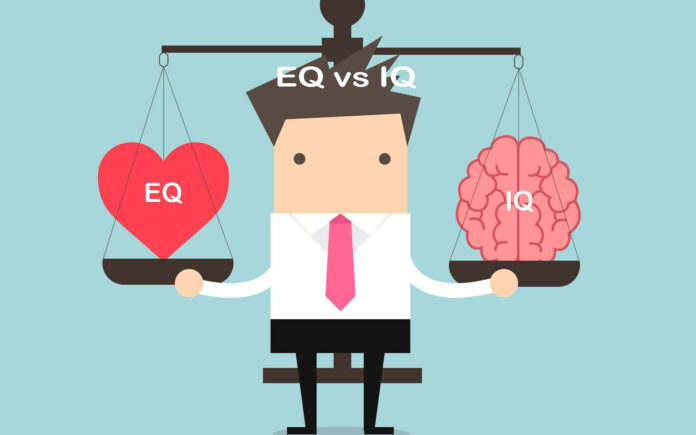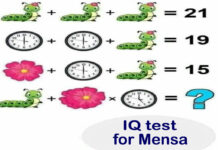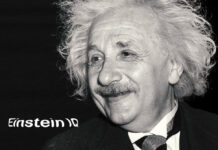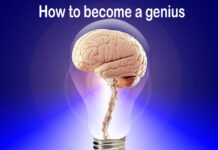
What is EQ?
Emotional Quotient is the ability to legitimately get over feelings and use them to improve
thinking. EQ refers to a person's ability to see, control, evaluate, and express feelings. People with high EQs can control feelings, use their senses to encourage thinking, understand enthusiastic consequences, and also, accurately see the feelings of others. High EQ is largely dictated how a person identifies with others and maintains passionate control. EQ characterizes aperson's ability to discriminate, evaluate, control, and also, express feelings. People for the most part become incredible leaders.
Because of their ability to understand, communicate, and interact with the people around them.
Emotional Quotient encourages you to build more meaningful connections, make the grade in school and work. Also, fulfill your vocation and personal goals. It can also help you deal with your emotions, turn your goal right into it. EQ is a prune form of the term emotional quotient, an assessment of the ability to perceive and control feelings. This is also called EI. Emotional intelligence includes more than your own feelings for a decent Leader.
What is IQ?
IQ stands for intelligence quotient, which is part of a person's thinking ability. Thus, it must measure how well someone can use logic and also, use their knowledge to answer questions. IQ test level begins to explore this by assessing short-term and long-term memory. In it, They measure how well people can solve puzzles and analyze the data that they hear, and quickly.
Each student can learn, no matter how smart they are. However, many students struggle in school
due to a lack of one explicit area of expertise. Students are regularly trained in individualized training programs. They can also, receive additional help in the territories where they fight.
Intelligence Quotient tests can help trainers determine which students will benefit from this
additional help. In addition, IQ tests can help identify students who may do well. Many schools and colleges also use tests such as IQ tests to select students.
EQ VS IQ
How are IQ and EQ assessed and tested? IQ is a number obtained from a normalized
comprehension test. IQ scores were determined by dividing a person's psychological age by their
sequential age. Then increasing this number by 100. Thus, a young man with a psychological age of 15 and an ordered age of 10 will have an IQ of 150. Today, most IQ tests are determined by comparing the test taker's scores with the normal scores of others of the same age group.
Intelligence Quotient represents many abilities like as
The visual and spatial preparation
Information of the world
Fluent thinking
Working memory and instant memory
Quantitative thinking.
EI hints at a person's ability to see, control, evaluate, and express feelings. Professionals’ persons have helped focus the light on passionate knowledge, making it a hotly debated issue in territories moving from the board of directors to education. EQ has much ability some of them as fellows
Recognize the feelings or emotion of the people
Get the measure of how others feel.
Also, controlling your own emotions
Recognize how to feel other people
We using emotions in it to encourage social discussion.
Identification with other
EQ IQ
EQ denotes for Emotional Quotient. IQ stand for Intelligence Quotient
Emotional Quotient is the ability to recognize, explore, control the feelings of oneself, others, and also, gatherings of people. It is a score obtained in one of several
normalized tests designed to measure
understanding.
Recognize, estimate, control, and express your
feelings, look on and explore the feelings of
others. It uses your senses to induce reflection,
reflect on emotional conclusions.
Capacity to learn, understand and apply data to ability, lawful thinking, word comprehension. It is the mathematical ability, conceptual and also, spatial rational. Cooperation, administration, effective relations, administration direction, activity, and also, joint effort include in it. Completion of test items, the ability to analyze
and draw obvious conclusions, study, and improvement in it.
Leader of any organization or company, cooperative people, people who want to work
alone people with social, and other difficulties.
Exceptionally healthy or talented people, people with mental disorders and unusual needs. Wayne Payne's doctoral theory in 1985(Emotion Research or developing emotional Intelligence). Daniel Goleman's 1995 book, EI. Why it may matter more than IQ, was widely adopt.
1883, English analyst Francis Galton's paper "Inquiries into Human Faculty and Its Development" First application came in French 1905 test to evaluate younger students in France
Why EQ is more important than IQ?
The idea of IQ seems to be timeless and is still use today. It includes an assessment that
characterizes the set of tests used to assess knowledge. The main term was innovated by
physician William Stern in 1912. The psychological age score obtains on the test was then
divided by the ordered age to make the portion be multiplied by 100. Modern IQ tests are scored
in contrast to what most adults perform anywhere in the 85 to 115 range. An incredibly low
number of people are recruiting from 130 to 70. This long-standing belief in the psychological
value of a person began to change. When the idea of rapturous insight and passion emerged in
the view. This led to an agreement that how we feel and how we deal with those feelings is as
important as the smart mind.
IQ VS EQ Debate
In this discussion, Emotional Intelligence, the writer suggested that EQ may indeed take
precedence over IQ. Because some analysts agree that the standard proportions of understanding
(IQ Score) are overly rigid and do not cover the entire body of human knowledge. The
psychologist Howard Gardner, recommends that knowledge is not just a single shared ability. All
things considered, he suggests that there are indeed many ideas and that humans may have
qualities in some of these areas. Rather than focusing on a singular or shared understanding,
commonly referred to as the factor. Some experts agree that the ability to understand and
communicate feelings can play an equivalent. If not more significant role in how people fare in
everyday life.
Which is better EQ or IQ?
IQ level just measures our intelligence potentiality, which has no immediate relationship to our
current knowledge, according to the psychologist. Advocates of supposing "book intelligence"
might suggest that IQ plays the most important role in deciding and how well people tolerate in
everyday life. People who advocate the importance of what might be classified as “street smarts”
are more likely to suggest that EQ is more important. It is inappropriate to say that EQ is more
important in every case than IQ. Because it really depends on the role. Hence, in leadership
positions, you should have the opportunity to communicate well with others, accordingly EQ.
Where the focus should be on the promotion of leadership.
IQ Vs EQ in the Workplace
The best leaders use both their IQ and as well as EQ. The persuasiveness, excellent memory, and
learning limitations demonstrate by high IQs are attributed to. What you would expect any
outstanding business leader to have. The boss's ability to accurately view non-verbal
communication and tune in to the emotional state of others. It can have the effect of winning or
losing the arrangement. So, it is the most ideal approach to looking at the specific qualities of
these evaluate? An effective leader must trade between genuinely decisive choices. On the other
hand, when you attract new customers, you need to sit in the back to appreciate their emotional
state and understand what is most important to them. Success in work dictates not only by IQ or
EQ but by the realization that each factor brings new levels of understanding of each position.
Emotional Intelligence at Workplace
The usual ratio of intelligence, for example, the IQ test usually centers around rationale and
reasoning in areas. This area includes mathematics and comprehension of perception. The
possibility that this type of thinking contributes to overall achievement in the work environment.
Emotional Intelligence quantifies a person's ability to cope with realities and combine them in
their current circumstances. The possibility that there is only one type of insight has been the
subject of extensive research freshly.
In the classroom, numerous faculty members have adopted the Theory of different bits of
Intelligence that is created by Dr. Howard Gardner. He thinks about verbal-semantic knowledge
and legitimate numerical comprehension. These two areas are score by standard tests as just two
of nine separate pieces of knowledge with a lot of qualities. Emotional Intelligence can take a
long time for additional exploration of the many ideas and styles to fully penetrate from the
foundation into the universe of work.
Emotional Intelligent People
It can take a very long time before further exploration of different ideas from the base into the
universe of work. However, the two aspects of understanding that Gardner calls intelligence and
intrapersonal have effectively. Emotional Intelligence People get serious speedier and without
any difficulty than others since they know their qualities. They genuinely determine workers who
start discussions to plan how something ought to cultivate. They become unusual judges in
character and begin to distance themselves from people. Extremely EI people capitalize on their
disappointments and mistakes and keep moving forward. Their usual tendency is to look for
exercises and they can use in the future to gain benefits. They do not want to move on, choosing,
rather, thinking about the prospects that are in front of them.
Emotional Genius
Psychologists are generally unsure how to characterize intelligence. Even after centuries of
discussions about what it is and how to measure it. In this way, we do have a wide range of
hypotheses and approaches to test human quality. Emotional Genius is all the more important
that doctors do not really have convincing evidence that knowledge is important for improving
the nature of our daily life. For successful knowledge, it is necessary that we understand how to
carry forward our best scientific achievements. From time to time, this implies the presence of
perfectly sound judgment or "the ability to value". Successful knowledge further includes
emotional understanding, also called EI.
Can EQ or IQ be Enhance?
Emotional mindfulness is best taught from the outset, endowing with qualities. Also, include
sharing, reflecting on others, imagining someone. This point of view, providing individual space,
and shared standards of collaboration. There are toys and games available to build enthusiasm
for knowledge. It is known that young people who do not thrive in a friendly environment do
significantly better after completing Social and Emotional Learning. EQ can also be improved,
although this is due in part to successful training. IQ is largely genetic make, but there are
several different ways to unleash a person's IQ. Its most remarkable potential through food for
the brain and mental skills such as puzzles, parallel thinking problems. Also, critical thinking
techniques force you to consider new ideas.
Conclusion
Taking a closer look at the effects and contrasts of EQ and IQ regularly forces us to recognize
that EQ is more important. Then general intelligence in light of the fact that being consistent
with ourselves is the simplest method of accounting for every moment. It is important to have a
high sense of emotional awareness. Fortunately, just like your IQ, your EQ cannot be changed.
While you may have territories that you are struggling in today, with an intentional attempt, you
can also, upgrade those results. It will help you in successful circumstances, particularly in
business or social collaboration. EI is part information, part limitation, and part discernment.
When we go to class for years to fabricate our IQ. We need to invest energy every day to
increase our EQ.













